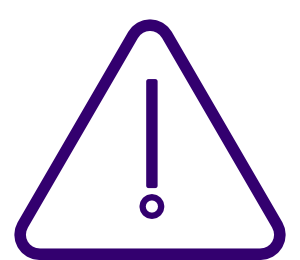News and Events
AAALAC International Site Visit – Summer 2026
 The University of Washington’s animal care and use program is proudly accredited by AAALAC International, a global non-profit organization that promotes the humane treatment of animals in science through voluntary peer review.
The University of Washington’s animal care and use program is proudly accredited by AAALAC International, a global non-profit organization that promotes the humane treatment of animals in science through voluntary peer review.
To maintain this accreditation, AAALAC will conduct a site visit in Summer 2026 to evaluate our facilities, policies, and practices.
This site visit is an important opportunity to showcase the strength of UW’s research community and our shared commitment to high standards of animal care and welfare.
Statement Regarding the June 30 Incident Involving a Nonhuman Primate Infant at the Arizona Facility of the Washington National Primate Research Center (WaNPRC)
Seattle, WA, October 16, 2025 — The University of Washington and the Washington National Primate Research Center (WaNPRC) are committed to ensuring the highest standards of animal care, veterinary oversight, and institutional accountability. We are deeply saddened to report and provide information regarding an incident involving a newborn macaque at our Arizona facility on June 30, 2025.
On the morning of June 30th, a female macaque was observed holding a newborn infant who appeared unresponsive. Trained animal care staff retrieved the infant and transferred the remains to veterinary personnel for standard postmortem procedures. Approximately one hour later, when a veterinarian prepared to conduct a necropsy, the infant exhibited agonal breathing, a reflexive type of breathing seen in animals near death. The onsite veterinarian immediately consulted with a senior colleague, and the animal was humanely euthanized.
An internal investigation determined that the animal had been presumed deceased and placed in a cooler without formal verification of death. The veterinary technician responsible did not follow appropriate confirmation procedures. This individual is no longer employed at the University.
To prevent this from ever happening again, WaNPRC has taken immediate and concrete actions:
- Policy Clarification: Staff have been formally reminded of the requirement to contact veterinary personnel for any animal found deceased. This directive will now be explicitly documented in our clinical reporting Standard Operating Procedures (SOPs).
- Enhanced Training: In-person training for all veterinary staff is being conducted to review proper euthanasia methods and confirmatory procedures.
- SOP Revision: Language is being added to a newly developed euthanasia SOP mandating secondary physical methods of euthanasia in some cases.
- Regulatory Reporting: This incident has been reported to the Office of Laboratory Animal Welfare (OLAW) in accordance with federal requirements.
This was a deeply regrettable and unacceptable event, and the University takes full responsibility. While postmortem findings indicate that the infant likely experienced dystocia related trauma and was nonresponsive at discovery, the WaNPRC recognizes the seriousness of the error and is committed to ensuring that no similar incident occurs in the future.
The University remains steadfast in upholding the welfare of all animals in its care and will continue to take decisive steps to reinforce its culture of accountability and compassionate care.
Statement Regarding Suspension of Animal Research Protocol
The University of Washington through its Institutional Animal Care and Use Committee (IACUC), has voted to suspend four active animal research protocols under a single principal investigator. This decision, made during the IACUC meeting on July 17, 2025, affects three nonhuman primate (NHP) protocols and one involving mice.
This outcome followed extensive deliberation, multiple meetings, and direct engagement with the principal investigator. The decision was not taken lightly. The IACUC carefully reviewed all relevant information and determined that the suspension was necessary due to a pattern of noncompliance and lack of accountability on the part of the principal investigator.
We recognize that these situations can be emotionally charged and deeply impactful for many involved. We unequivocally condemn any harassment, vilification, or humiliation of individuals associated with this event—whether the principal investigator, research staff, oversight personnel, or others. The IACUC must be able to fulfill its responsibility to ensure the ethical and humane treatment of animals without fear that the process will be misused to harm reputations or perpetuate abuse.
This action reflects our institution’s continued commitment to research integrity, animal welfare, and fair, unbiased oversight.
Rx Destroyer
 Last fall, UW moved to a new model of controlled substance disposal, using a product called Rx Destroyer to render controlled substances irretrievable rather than returning controlled substances through reverse distribution. Rx Destroyer is available for purchase through UW Drug Services.
Last fall, UW moved to a new model of controlled substance disposal, using a product called Rx Destroyer to render controlled substances irretrievable rather than returning controlled substances through reverse distribution. Rx Destroyer is available for purchase through UW Drug Services.
The Sample Logs and Templates page on the OAW website has been updated to include an Rx Destroyer Process Guide. This is a template that your lab can download and revise to fit your needs. Other templates available on that page include logs for post-operative monitoring and for controlled drug management.
Our template library is located on our Researcher Resources page. We encourage you to browse the other resources available on that page as well, which include regulatory guidance documents, 3Rs resources, and experimental design support.
Federal Administration Updates & Guidance

Updates and guidance on responding to requests from federal agencies can be found on the pages below.
These will be updated as information and guidance is released.
Stop-work Orders, Suspension of Work, or Funding Terminations for Animal Studies
Guidance on Federal Administration Policy
Federal Administration Updates
Stay updated on federal policy changes and their impacts
Visit the UW Provost’s office Federal Policy Updates website for the latest information on policy changes impacting our community, teaching, research, service and patient care.
New and Improved Application
 The Animal Program has revamped the Shared Rodent Service (SRS) web application, introducing features that simplify and enhance the search process. Submissions are now more user-friendly, making it easier to quickly identify species, strains, and other key details.
The Animal Program has revamped the Shared Rodent Service (SRS) web application, introducing features that simplify and enhance the search process. Submissions are now more user-friendly, making it easier to quickly identify species, strains, and other key details.
Reporting Animal Welfare Concerns
 The University of Washington investigates any allegations of suspected misuse of animals or deficiencies regarding the care and use of research or teaching animals. To make a report or discuss a concern or perceived problem, please submit a concern.
The University of Washington investigates any allegations of suspected misuse of animals or deficiencies regarding the care and use of research or teaching animals. To make a report or discuss a concern or perceived problem, please submit a concern.
Fast Facts
Did you know?
There are nearly 300 specialized research centers or institutes at the UW.



